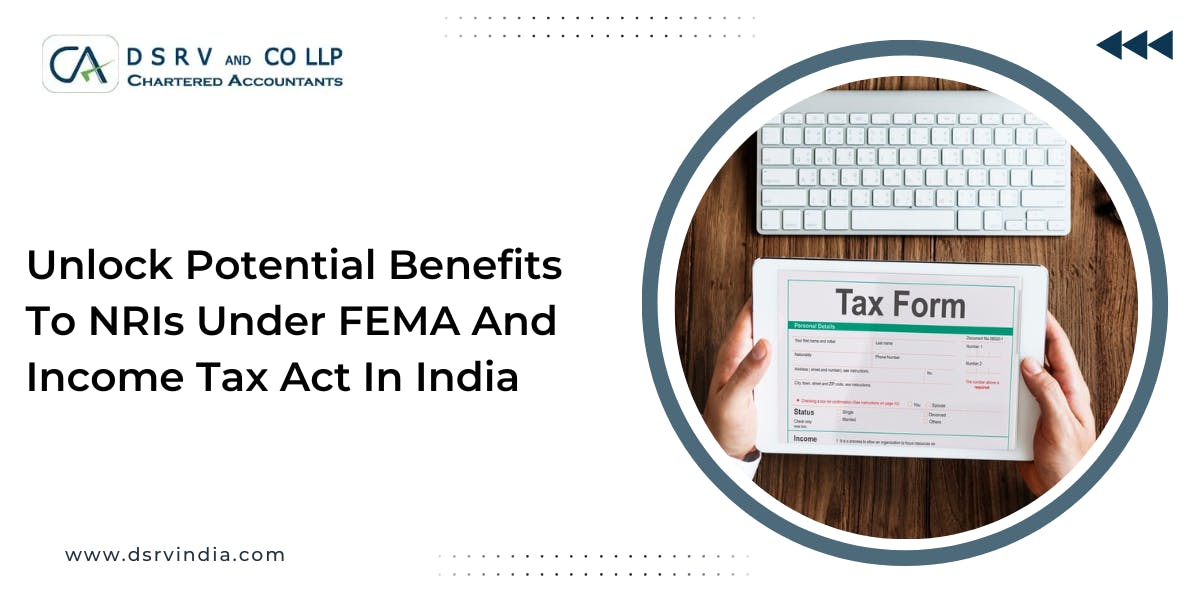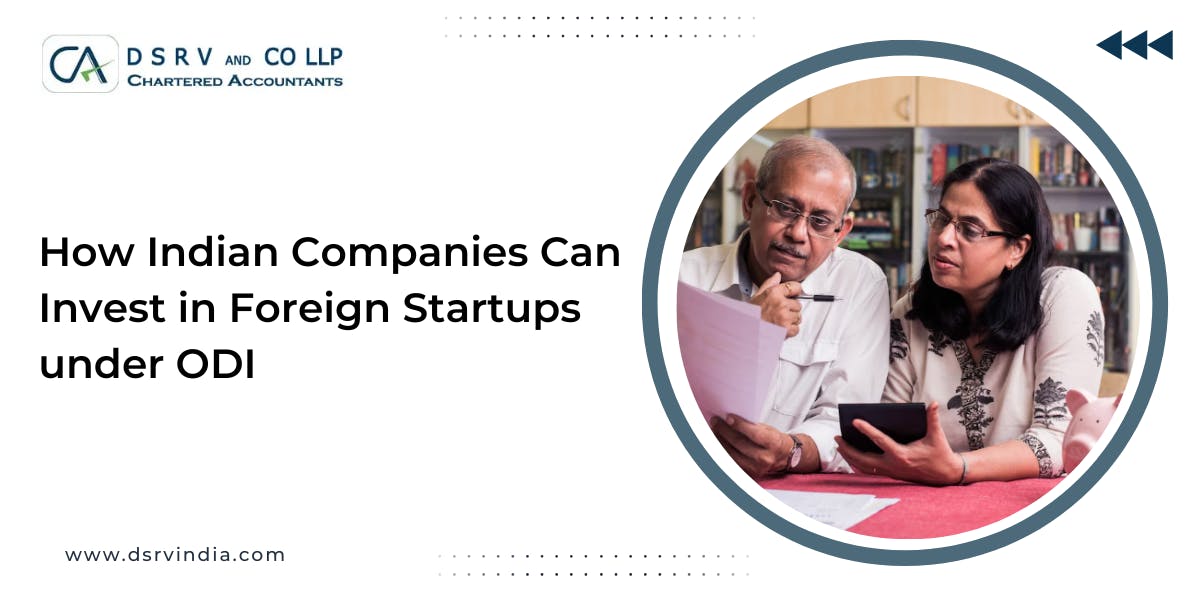Latest Rules For NRI Consideration Under FEMA And Income Tax Act
Non-resident Indians, are individuals who are originally Indians but stay outside India for an uncertain period due to several factors. It can be employment, studies, business, or other purposes that they leave India for an extended period. Despite not visiting India frequently, they maintain a good connection to their original home country and contribute to the economic stability of India.
So, are you planning to shift outside India or stay in India permanently?
Then, you must know the tax laws for your income, or if you can still get tax-free interest when you come to India permanently. However, you must know the taxation services about whether you qualify as a resident or an NRI to enjoy the benefits of NRIs under FEMA and Income Tax Act.
Thus, let's crackdown on this confusion by understanding the definition of NRI under FEMA compliance and the Income Tax Act of India.
Recommended: Don't Let Indian Income Tax Haunt Your Dreams: A Must-Read Guide On NRI Taxation
How You Can Be Considered Non-Resident As Per Income Tax Act?
As per Income Tax Act Section 6, an individual can be identified as a non-resident under a few criteria. However, there are three residential statuses of an individual under Income Tax in India -
- Resident and Ordinary Resident (ROR)
- Resident and Non-Ordinary Resident (RNOR)
- Non-Resident Indian (NRI).
Determining NRI Status under The Income Tax Act
- Your total days spent in India under a financial year and past years.
- If you have Indian citizenship and Indian residential status.
Defining Non-Resident Under FEMA
Section 2 of the Foreign Exchange Management Act states the residential status of an individual under 2 conditions:
- Indian Resident
- Resident Outside India (NRI).
Considering NRI Status Under FEMA
If you come to India without an intention of settling here or for employment purposes. Then, you will be considered an NRI irrespective of your days spent in India.
Read Also: The Insider Tips For Foreign Companies To Start A Business In India
What Are The Top Benefits To NRIs Under FEMA And Income Tax Act?
Today, we will discuss the benefits to NRIs under FEMA and Income Tax Act. Thus, don't miss out on this information.
1. Owning Immovable Properties
Under the FEMA regulations, an NRI can invest, hold, and acquire immovable properties both abroad and in India. They can take part in the global investment sector by purchasing land, acquiring companies, and buying shares. While, you can get all these benefits, there is only one aspect that you cannot buy agricultural, farming, or plantation lands in India.
2. Low Rate Of Tax Deduction On Sale Of Property
The Indian taxation laws allow NRIs to apply for a certificate that can significantly reduce TDS when selling a property in India. Therefore, if you are an NRI and you are selling a property in India. Then, a TDS as Long Term Capital Gains Tax (LTCGT)of 20% will be deducted by the buyer for properties sold prior to 2 years.
3. Investment Scopes In India
No matter if you are an Indian citizen but stay outside India, you can still enjoy the benefits to NRIs under FEMA and Income Tax Act by getting scope to invest in financial assets in the country. You can invest in shares, mutual funds, and securities without any control or restrictions.
4. Non-Taxable Foreign Income
According to Income Tax Act Section 9, any income that NRIs earn outside India remains non-taxable for such individuals except for special cases.
Thus, giving NRI individuals the benefit of significant financial gain.
5. Tax Exemptions
NRIs can also avail the benefits of certain tax deductions and reductions on certain income types in India. It may include education and medical expenses as well as house rent allowances.
6. Import Of Gold And Silver
As per the latest Income Tax Act update, an NRI can bring up to 10,000 grams of gold and 100 kgs of silver per baggage. However, they can import a certain amount of gold or silver only once in six months after a continuous stay abroad for six months.
So, if you are an NRI, then you can bring gold to India by paying a custom duty of Rs. 220 per 10 grams of gold.
7. Company Registration And Setup In India
Are you an NRI and wish to return to your home country India with business setup ideas?
Then, be assured that you can open your new private or public limited company in India. Once, your identity proof, address proof, and other documentation are attested by the Embassy of India. You can freely set up your own business in India.
8. GST Registration
According to the GST Act of India, if a non-resident taxable individual intends to settle in India for business purposes. Then, he/she can apply for GST registration through FORM REG-09 of GST.
9. Relief From Double Taxation
NRIs can use the Double Taxation Avoidance Agreement (DTAA) provision to avoid double taxation between India and other overseas countries.
Read More: How FDI Under FEMA Can Boost Your Financial Wealth!
Conclusion
We have mentioned a few of the top benefits to NRIs under FEMA and Income Tax Act that they can enjoy. Other benefits that a person of Indian origin can enjoy who is also a non-resident of India are access to education, medical treatment, fund repatriation, and more.
Get to know all about the benefits for NRIs under the Income Tax Act and FEMA from our expert team at DSRV India for further queries.







